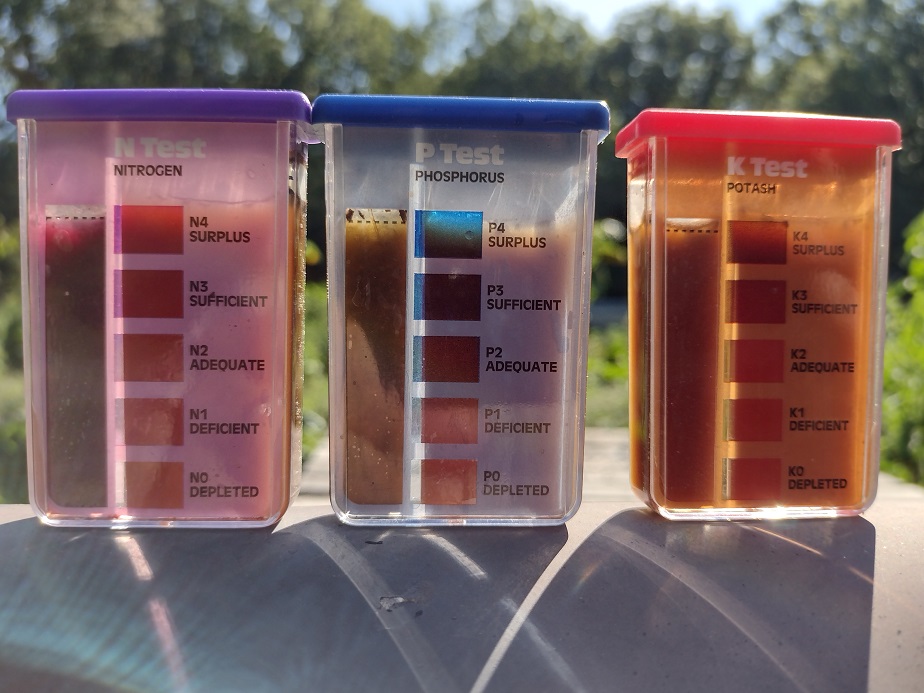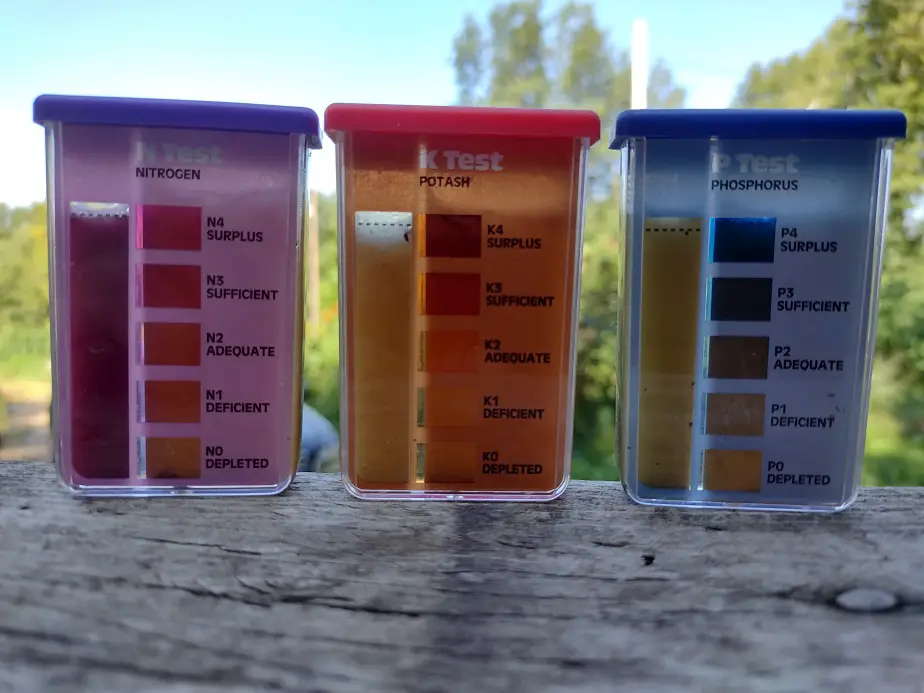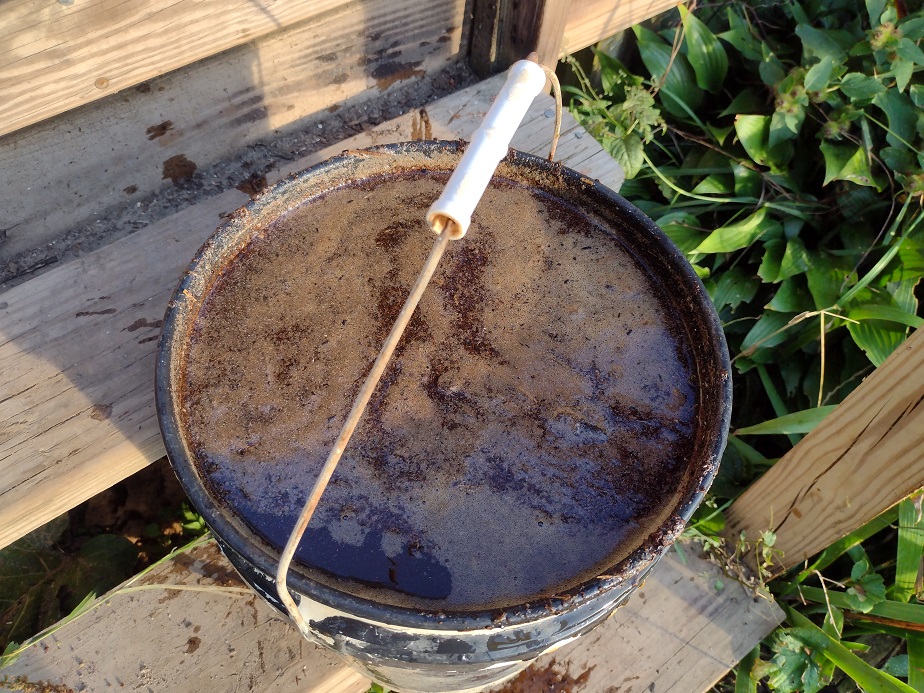Compost tea and manure tea are important topics for sustainably growing your own food.
Manure tea usually has a higher nutrient content, but it can have a mild smell that lasts several days. Compost tea is cleaner and smells better when fresh, but it’s fairly low in plant nutrients. Manure tea can be more of a mild fertilizer than compost tea. Both are beneficial to gardens.
These are an extract creating a diluted, water-soluble dose of beneficial minerals for your plants. Doing it right can have good benefits but do it wrong and you are wasting your time and may get people sick.
What’s Better, Compost Tea or Manure Tea?
Compost tea is often thought of as better, but manure tea is the better fertilizer as long as it’s made with fresh manure. Manure tea usually has twice the nitrogen as compost tea, and it works better to feed hungry or malnourished pants.
It’s just like it sounds, water and either manure or compost, strained then applied, to your garden soil. The primary purpose is to create a mild, fast-acting fertilizer. With what’s available to you. Not everyone has manure sitting around. That’s why compost tea is more popular.
Fresh Manure is usually about 3-4 times stronger than your average compost. Store-bought compost is usually the worst. If you want to fertilize your plants during the growing season, compost tea may not make a noticeable difference because it’s pretty weak.
I took samples of the compost tea (a fairly strong compost) and it had less nitrogen, but more potassium available than my compost manure.

Generally, compost tea is something that requires multiple uses to show an effect. It’s still useful for sure, and it’s easy on the soil, but it can take more time to work with. In my experience, Manure tea shows faster, more noticeable results on plants that are nutrient deficient.
I will say, whichever you use, go lightly on it the first time. If you do happen to have very strong compost, overdoing it can hurt your plans and soil biology. The best practice is to do a soil test before then another a few days after applying to see what difference if any it made.

Making and Using Manure Tea
To make manure tea, fill a bucket 1/3 with manure, the fresher the better, and almost fill it the rest of the way with water. Use a hoe or shovel to agitate it and get the manure broken up and mixed up. It can take a couple of minutes. Let it sit until it’s settled, and with a smaller bucket, scoop off the top water to use.
Apply it directly to the soil. For crops with low-growing produce that are eaten fresh, pour it slowly and a little further from the plant to avoid splashing on any product you will be eating soon. With something like corn, you just pour it and do not have to worry because it’s so far off the ground.
The photo above shows a simple nutrient test I did with chicken manure tea. This was clean manure (no straw) taken from under the chicken’s roost after it had dried. At that strength, you need to apply it lightly.
It’s always a good idea to go easy on it at first until you start to get a feel of how much you can use. I’ll use between a pint and a quart worth of manure tea per plant, depending on how fresh the manure is. The fresher stuff will either be made weaker or given a lower dose.
The best manure for manure tea is solid manure from animals like rabbits, cows, and goats. Avoid any slurry manure during the growing season because it contains more bad bacteria. I use a lot of rabbit manure and have used horse and dairy cow manure too.
How Often to Use Manure Tea?
You can use manure tea daily for a short-term fertilizer regime. Be sure and do a soil test to see if it’s needed. Testing again throughout the year will let you know if regular applications are necessary. You can over-apply manure tea. Too much will can create improper plant growth or salt build-up in some soils.
If you are planning on using manure tea as the primary fertilizer for a crop, You’ll need to do it fairly regularly. Depending on how strong it is, you’ll have to use it anywhere from twice a week to every other week. It takes a little trial and error, and DIY soil tests to get to understand just how much is needed.
Different varieties of plants have different fertilizer needs. Different climates and soil types will have varying amounts of nutrient loss through leaching and outgassing. You need to work to train your eye to see some of the early signs of too much or too little fertilizer for your crops.
Making and Using Compost Tea
To make compost tea, fill a bucket 1/3 with compost, add water, and let it sit a few hours in the sun to warm up. When it’s warm, mix it well with a shovel or hoe. After it’s settled, scoop off or strain the water and apply it to your garden. Use within a day of making.
Compost tea can often be applied every few days. If made from strong compost, apply more like once a week or so. It’s an art to get the dosage right. It takes a feel and a series of visual cues to determine if it’s needed frequently.
Plants that are growing slower than they should, or that look weak and struggling probably aren’t getting enough nutrients. Plants that are growing fast, but seem soft and wimpy, seem off-color, or are getting overgrown and not blossoming may be over-fertilized.
Once again, soil tests before and periodically during the growing season will take a lot of the guesswork out of the process. After a couple of years of soil testing, you will have developed a pretty good feel for how much is needed and how frequently to apply it.
Is Manure Tea Safe for Vegetables?
Manure tea carries risks in the garden. It can be safely used, but it can also make someone sick. Manure from healthy animals poses a very low risk of disease or parasites, but fresh manure will probably contain E. coli and salmonella. Basic application standards negate the risks of using it.
When you apply manure tea, don’t let it get on anything you plan to eat raw within a month. The USDA recommends a 90-day period after applying manures before harvesting any low-growing produce. The soil will clear up the harmful bacteria on its own, given some time. Manure tea goes a lot faster than manure.
If the Manure tea smells like fresh or well-aged manure, not rancid or foul, I’d give it a waiting period of several weeks before harvesting any low-growing produce. If it’s bad, I’d look for some other manure. It’s also a good idea to rinse all produce before eating it. Folks aren’t used to doing that these days.
Related articles:

